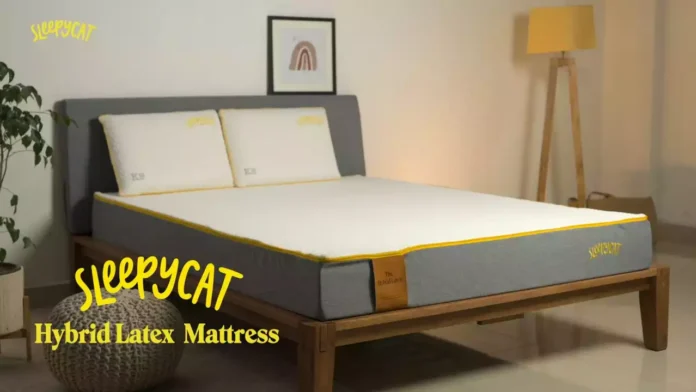Springwel Mattresses is nearing the finalization of acquiring SleepyCat, a direct-to-consumer (D2C) mattress startup, in a bargain deal, according to sources. The deal, primarily involving the sale of shares, has been under negotiation for several months and is anticipated to be completed in the upcoming weeks, they further noted.
In these types of transactions, instead of receiving a cash payout, the company and its investors are provided with shares in the acquiring company.
A source familiar with the situation stated that the agreement between Springwel and SleepyCat is expected to lack a cash element. Due to the intense competition within SleepyCat’s sector and challenges in fundraising, selling to a larger entity appeared to be the most favorable choice.
Continue Exploring: Sleepyhead enters offline retail market with debut store in Karnataka
Whether the SleepyCat team will continue to operate the business autonomously or integrate into Springwel remains uncertain.
Queries directed towards SleepyCat and Springwel went unanswered.
SleepyCat finds itself in competition with other robustly funded and larger startups like Wakefit, supported by Peak XV Partners, and The Sleep Company, backed by Premji. The recent $22 million funding round of The Sleep Company, its largest yet, underscores the investor trend of favoring top-performing ventures while steering clear of others.
Consolidation within the direct-to-consumer (D2C) realm isn’t a novel concept. Enterprises unable to expand often find themselves acquired by bigger entities, usually at a significant markdown. SleepyCat serves as a prime illustration of this trend.
Established in 2017 by Kabir Siddiq, the company has secured slightly over $5 million in funding from investors such as DSG Consumer Partners, Saama Capital, Rishabh Mariwala’s Sharrp Ventures, and others over the course of approximately seven years, as reported by Tracxn, a provider of private markets data.
In August, there were reports indicating that Springwel was negotiating to obtain a controlling interest in SleepyCat for an estimated INR 70-80 crore, although talks had reached an impasse.
Despite securing funding, SleepyCat did not achieve the rapid scaling it had hoped for.
In FY19, upon receiving its initial institutional funding, the company boasted a revenue of INR 10 crore and garnered a profit of INR 55 lakh. However, by the conclusion of FY23, four years later, its revenue had surged to INR 55 crore, albeit with losses ballooning to INR 16 crore.
Continue Exploring: The Sleep Company launches second tranche of INR 2.4 Cr ESOP buyback program
In the early stages, many startups experience exponential growth due to their small revenue base. However, SleepyCat defied this trend, possibly contributing to its lack of new funding rounds since 2021, despite the fervent investment climate.
Since its acquisition by Ananta Capital in July 2022, SpringWel Mattresses, a longstanding company, has maintained steady growth in its revenue.
According to regulatory filings obtained via Tofler, the company achieved a revenue of INR 253 crore in FY23, marking a 24 percent surge compared to the preceding year. Despite this growth, the company’s profit remained unchanged at INR 2 crore for both fiscal years.
Established entities such as Springwel have been strategically acquiring smaller companies, particularly those emerging in the sector, to strengthen their market standing. In a similar vein, last year, Sheela Foam, a competitor of Springwel, acquired a 35 percent stake in Furlenco, an online furniture company.





